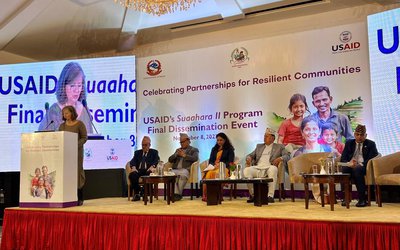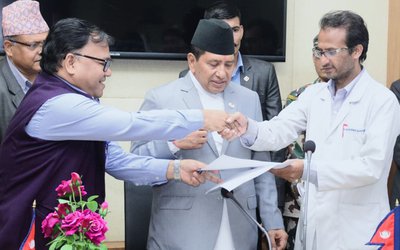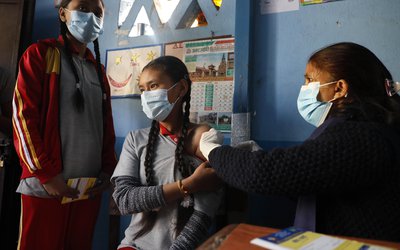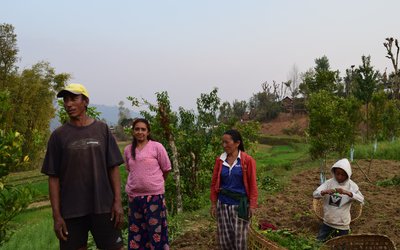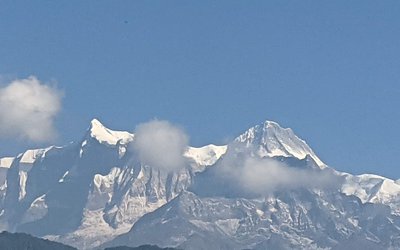Recently in Nepal there has been a scare regarding vaccinations. Because vaccinations are given to large numbers of people, vaccines sometimes get blamed for problems that may not have been caused by the administration of the particular vaccine. For example, someone from the vast numbers of people who receives a particular vaccine may coincidentally suffer from a medical problem ( without the symptoms of the disease being manifest ) at the time of the vaccine administration. And then later, the vaccine is blamed for the problem. This is not an uncommon happening. But of course there could be problems with the vaccine being administered using unhygienic methods which may cause an infection. And for sure, even when a particular vaccine has been around for many decades, it may still cause problems to one particular patient, but this does not mean that the particular vaccine has to be stopped. Or, as with the MMR vaccines, there may be misperceptions about the vaccine causing autism.
Several years ago in Pokhara I remember a six year old French child who died of suffocation due to the complications of diphtheria, a vaccine- preventable illness. His French parents with whom the child lived did not believe in vaccinations. Having seen many young Nepalis die of diphtheria and other similar vaccine- preventable illnesses ( measles, tetanus, whooping cough), I am unable to comprehend the mindset of the anti- vaccine activists in the developed world.
In a sense public health officials in the developed world are struggling with the consequences of their own success in the prevention of diseases using vaccines. When most members of a community are vaccinated against a particular disease, the minority who do not receive the vaccination are also protected by a phenomenon called “herd immunity”. However recently there have been outbreaks of measles in Europe and the US because many people are choosing not to be vaccinated. This may be a genuine clash between individual liberty and social welfare. Unlike in the developing world where we continue to witness the onslaught of many vaccine- preventable infectious illnesses, anti- vaccine activists in the developed world may have forgotten diseases like small pox and how they were brought under control.
Small pox had been a scourge for thousands of years. In Nepal too there are temples dedicated to gods that cure small pox. In the twentieth century alone before small pox was eradicated in 1977, it killed a staggering three hundred million people. Now, amazingly only two tiny vials of this virus exist, one in Siberia and the other in Atlanta in the USA.
Realistically though, just like sudden weather changes at the top of Mount Everest that may determine which group of climbers will be successful, the organism ( virus or bacteria ) may have the last word. In 2003 the viral disease SARS ( Severe Acute Respiratory Syndrome) scared everyone and whole departments were created by the World Health Organization to tackle the problem and try to produce a vaccine; but surprisingly the virus disappeared at the end of 2003. Similarly in 2009 a novel influenza virus, H1N1 emerged in Mexico and threatened a global pandemic and vaccination was strongly recommended, but then the disease appeared to peter out.
Those examples notwithstanding, we should never be complacent about trying to obtain the life-saving vaccines which have helped modern medicine triumph over common infectious diseases prevalent in countries like Nepal.

Buddha Basnyat MD
Buddha Basnyat, MD, MSc, FACP, FRCP, Director of the Oxford University Clinical Research Unit-Patan Academy of Health Sciences, Kathmandu.
- Altitude Sickness
- Feb 20, 2018
- Post-earthquake Nepal: The Way Forward
- Dec 13, 2015
- The Annapurna Sanctuary
- Nov 29, 2015
- Diarrhea at the Summit
- Nov 08, 2015
- Altitude Sickness ( AMS, HAPE, HACE)
- Oct 15, 2015



